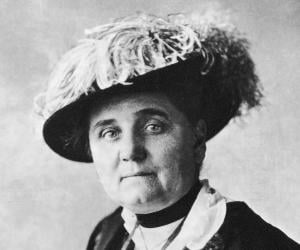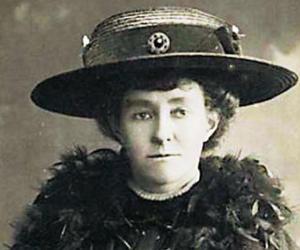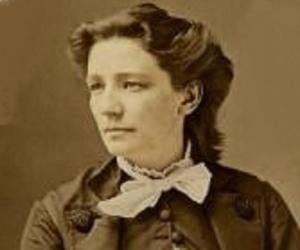Quick Facts
Also Known As: Claudette Austin
Age: 86 Years, 86 Year Old Females
Family:
father: C. P. Colvin
mother: Mary Anne Colvin
Civil Rights Activists American Women
U.S. State: Alabama
City: Montgomery, Alabama
Childhood & Early Life
She was born in King Hill, Montgomery, Alabama as the daughter of C. P. Colvin and Mary Anne Colvin. Her neighborhood was a very impoverished one where even routine life was a struggle for most. The area also had a bad reputation for being a drug addict’s haven.
She was a bright girl, intelligent and curious. Her rebellious nature was apparent from a young age. She studied at the Booker T. Washington High School in the city.
In spite of her impoverished background, she held high aspirations and had mentioned in a school assignment that she wanted to be the president. She learnt about the civil rights movement in school and was a member of the NAACP Youth Council.
While she was in school, a very disturbing incident happened that would remain with her for life. A black teenage boy, Jeremiah Reeves was caught having sex with a white woman. On being discovered, the woman alleged rape while Jeremiah insisted it was consensual.
However, the voice of the blacks was not given any significance during those days and the boy was arrested, charged for being a serial rapist, and sentenced to death. He was executed after four years. This incident made Claudette realize how vulnerable blacks were in her city.
On 2 March, 1955, she was riding a Capital Heights bus downtown when some white people got on. At that time there was segregated seating arrangements in the buses—the blacks at the back and whites at the front. She was sitting in the middle and was asked to vacate her seat for a white person who was standing.
Even though just 15 years old at that time, Claudette knew that it was her right to sit anywhere in the bus as she had bought a ticket. Thus she refused to move, infuriating the bus driver, Robert W. Cleere.
According to the Jim Crow laws, the driver had the right to call the police to make the girl move. Two police officers, Thomas J. Ward and Paul Headley were called who tried to make the girl move. When she refused, she was physically assaulted and forcibly taken out of the bus.
Taken to a prison, Claudette was terrified—what would the police do her now? After all, she was just a young girl! She was enraged by the atrocities meted out to her simply for refusing to give in to an act of discrimination.
She spent three hours in the jail before her mother and pastor, Reverend H.H. Johnson came to bail her out. She was convicted of disturbing the peace and violating the segregation law. However, this incident sparked off a heated debate in the Alabama community about the segregation laws.
Later on she was called as one of the plaintiffs in the court case Browder v. Gayle which ultimately determined that the bus segregation in Montgomery, Alabama, was unconstitutional. The case went to the United States Supreme Court who affirmed the District Court’s ruling and Alabama was ordered to end bus segregation in the state on 20 December, 1956.
The black community was starting to hail her as a pioneer in African-American civil rights movement when she discovered that she was pregnant. The conservative community felt that hailing an unmarried pregnant woman as an icon would not be ideal and thus she never got the recognition she deserved.
Later Life
She was finding problems in living and finding work in her hometown after she became a sort of public figure. Thus she went to New York in 1958 where she first lived with her elder sister.
She soon found work as a nurse’s aide in a nursing home in Manhattan. She worked there for 35 long years before retiring in 2004.
Major Works
She was the first ever black person to protest against the segregation of seats in bus in Alabama. However, since she became pregnant soon after the incident, black civil rights activists refused to recognize her as a pioneer. This honor then went to Rosa Parks, a middle-aged woman, who nine months after the Colvin incident refused to give up her seat in a bus.
Personal Life & Legacy
While still a teenager, she became pregnant with her first child. She gave birth to a baby boy in December 1955. She had another baby boy while living in New York. She did not marry.
Facts About Claudette Colvin
Claudette Colvin refused to give up her seat on a segregated bus in Montgomery, Alabama, nine months before Rosa Parks’ famous act of civil disobedience.
Despite facing backlash and discrimination for her actions, Colvin remained steadfast in her beliefs and continued to be an active participant in the civil rights movement.
Colvin’s bravery and defiance played a significant role in challenging segregation laws and paving the way for the Montgomery Bus Boycott, a pivotal event in the civil rights movement.
In addition to her activism, Colvin went on to work as a nurse’s aide and dedicated her life to helping others in need, demonstrating her commitment to social justice and community service.
Today, Claudette Colvin’s contributions to the civil rights movement are increasingly recognized and celebrated, highlighting the importance of her early role in challenging racial segregation in America.
See more:


















